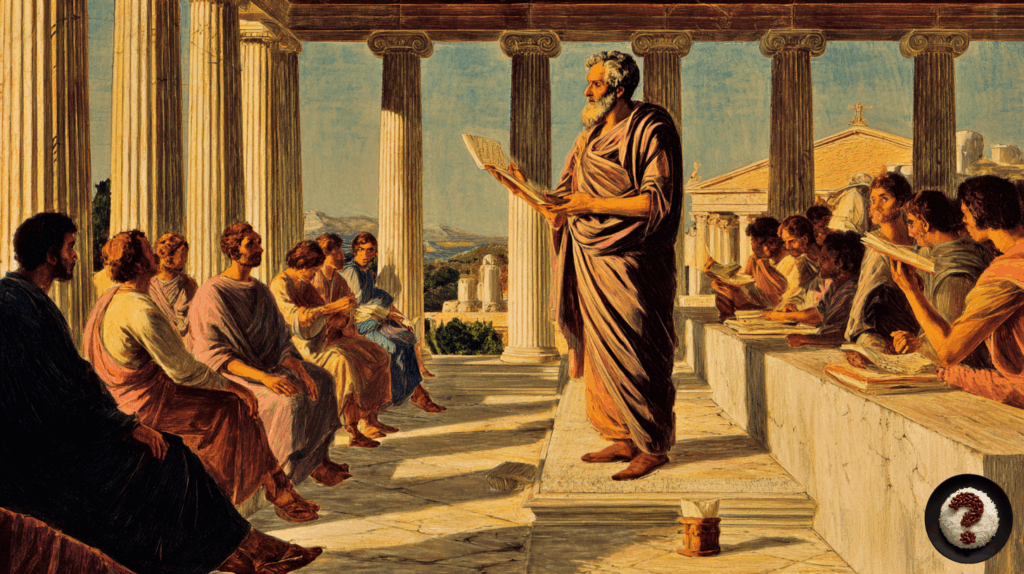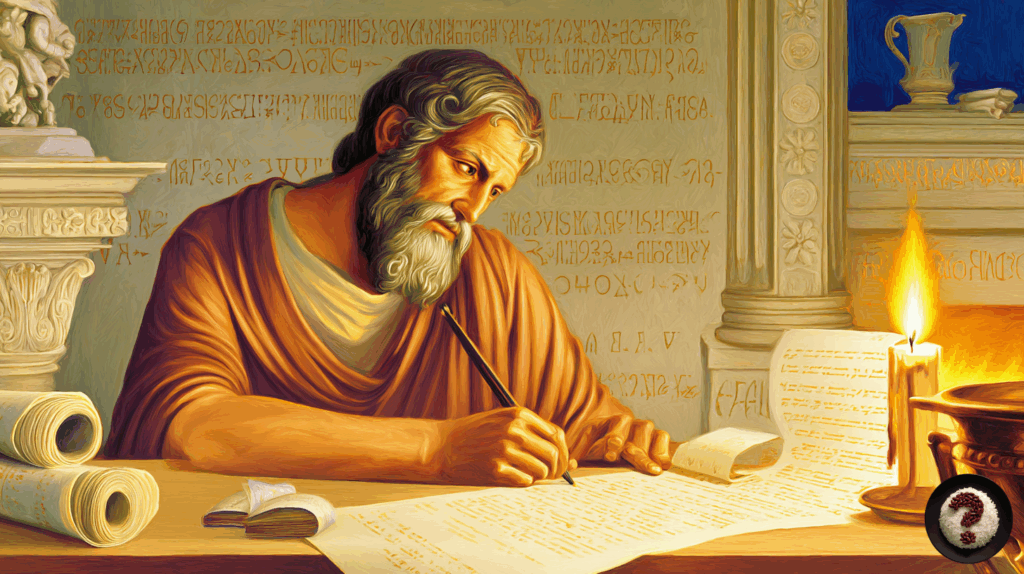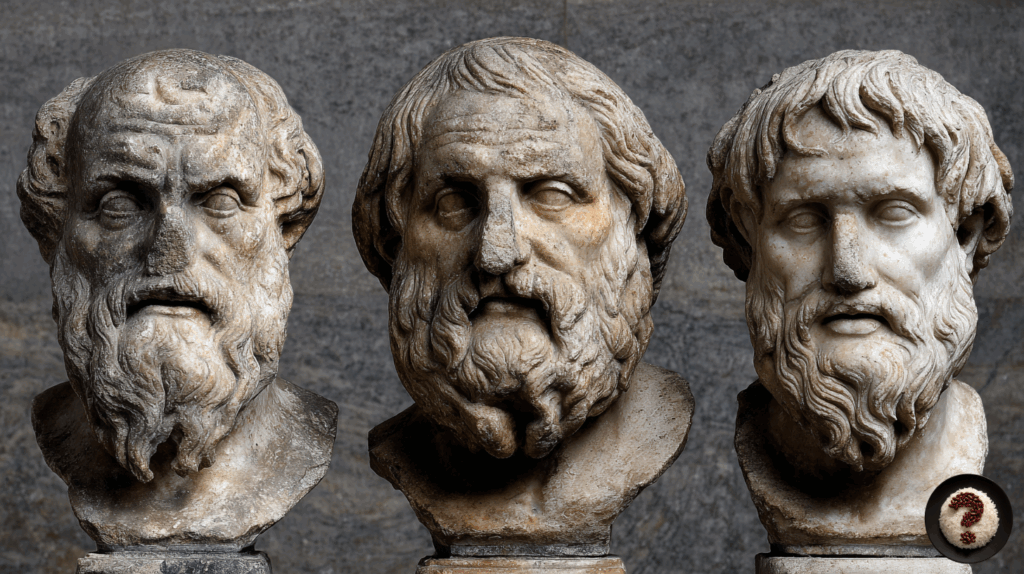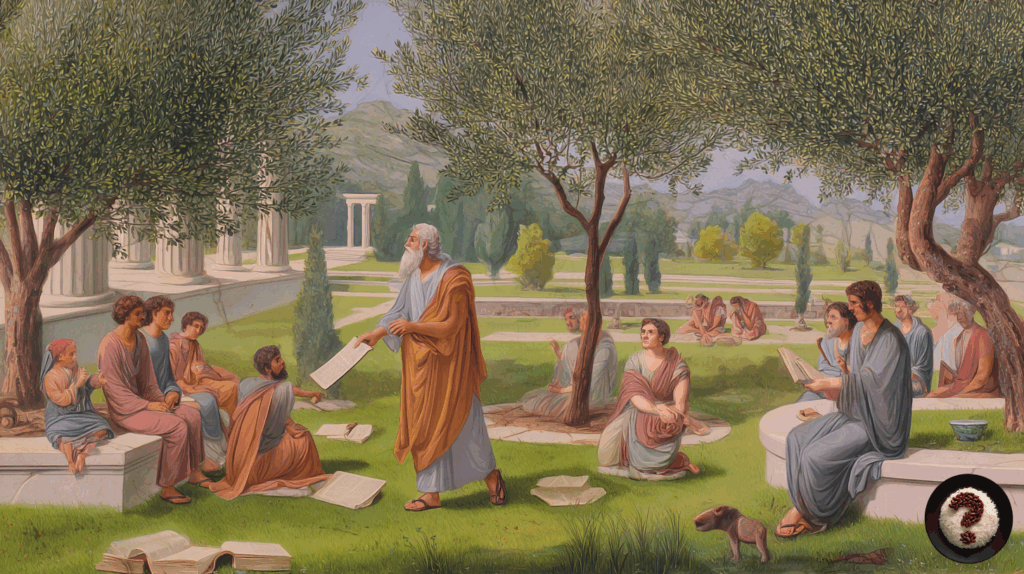
Plato – 100 People Who Changed the World #4
Short Biography
Plato (427 BC – 347 BC) is one of the most influential thinkers of Ancient Greece. His original name was Aristocles, but he was given the nickname “Plato,” meaning “broad,” due to his wide shoulders. Born into a noble Athenian family, Plato was interested in politics in his youth, but after the death of his teacher, Socrates, he withdrew from politics and turned to philosophy.
During his student years, Plato developed his intellectual world inspired by Socrates and systematically organized his teacher’s ideas. After Socrates’ death, he traveled extensively, encountering different schools of thought in Egypt and Southern Italy. Upon returning to Athens, he founded the Academy (Akademia), one of the most famous educational institutions in the history of Western thought.
This article is the 4th part of our series, ‘100 People Who Changed the World’.

Key Contributions and Achievements
One of Plato’s most well-known works is “The Republic” (Politeia). In this work, he questioned the concept of justice and put forth the idea of the “ideal state.” According to him, justice is achieved when every individual undertakes the task appropriate to their talents. Plato also advocated the idea of “philosopher kings,” stating that wise people should be in the governance of the state.
Another significant contribution is the Theory of Forms or “Theory of Ideas.” According to Plato, reality is divided into two: the temporary world we perceive with our senses and the unchanging, perfect world of “Forms” (Ideas). For example, a table we see in the world is merely a reflection of the “Form of a perfect table.” This approach created a major revolution in the fields of metaphysics and epistemology.

Impact on the World
Plato’s ideas were not limited to Ancient Greece but formed the foundation of Western philosophy. Together with his student, Aristotle, he contributed to the development of philosophy as a systematic field of science.
During the Middle Ages, Christian thinkers integrated Plato’s ideas with religious thought. Saint Augustine, in particular, interpreted Plato’s Theory of Forms with a God-centered understanding. During the Renaissance, Plato’s works were rediscovered and played a major role in the development of modern philosophy.

Interesting Facts
- Plato was the student of Socrates and the teacher of Aristotle. These three names are known as the “Golden Trio” in the history of philosophy.
- He usually wrote his works in the form of dialogues, with Socrates typically serving as the main character.
- The Academy is considered the foundation of modern universities.
- Plato also placed great importance on mathematics and geometry. It is said that the entrance to the Academy bore the inscription, “Let no one ignorant of geometry enter here.”
- Plato’s works are still primary sources for philosophy students all over the world today.

Conclusion
Plato is not only a philosopher but also one of the founders of the Western intellectual tradition. His ideas have profoundly influenced many areas, from political philosophy to ethics and epistemology. Through the Academy, he ensured that philosophy met educational institutions and systematized his thoughts.
Today, Plato’s questions about “justice,” “knowledge,” and “reality” remain relevant, reminding humanity of the importance of thought.
References
- Stanford Encyclopedia of Philosophy – Plato
- Internet Encyclopedia of Philosophy – Plato
- Britannica – Plato
- Project Gutenberg – Plato’s Dialogues
